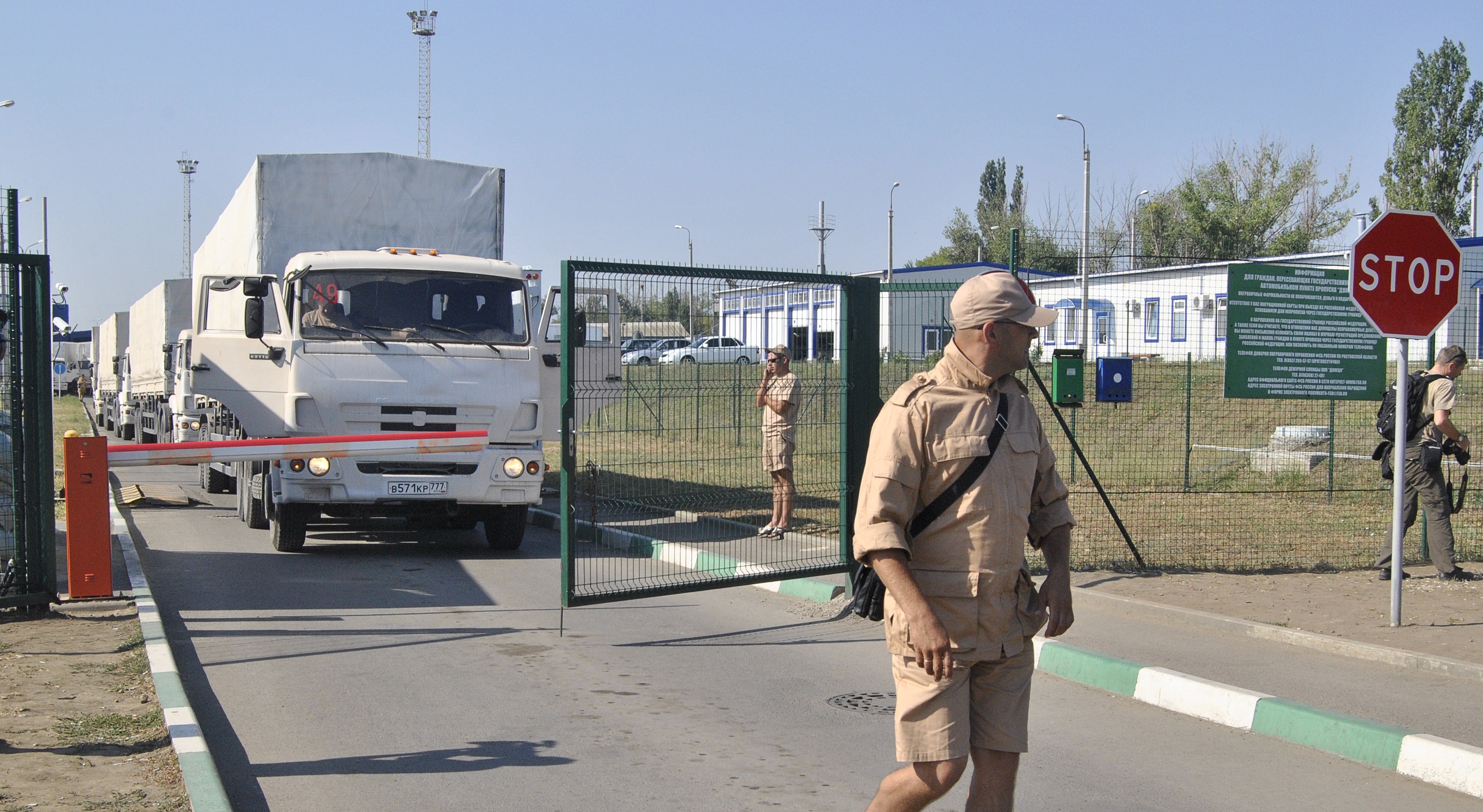
In March, the German tabloid Bild published an article based on a secret document that reveals how breakaway areas of eastern Ukraine are “being treated as parts of Russia’s sovereign territory.” The revelations cast the ongoing Minsk 2 peace negotiations in a new light, one that illuminates the frustration being expressed by the Ukrainian government.
The document obtained by Bild is a report from an October meeting of Russia’s “Inter-Ministerial Commission for the Provision of Humanitarian Aid for the affected Areas in the Southeast of the Regions of Donetsk and Luhansk.” It describes how the meeting’s attendees did not just focus on humanitarian assistance, but rather served as a sort of shadow government. Working groups cooperating with Russian authorities were set up to manage the region’s finances, economic policies, energy and transportation infrastructure, and trade.
Notably, the meeting took place under the watchful eye of four members of the Russian secret police (FSB) and was chaired by the Russian politician Sergey Nazarov. The titular heads of the Donetsk and Luhansk Peoples’ Republics were not present. Indeed, the only Ukrainian in attendance was a representative of the energy giant DTEK, owned by Rinat Akhmetov, the country’s richest oligarch.
The Kremlin’s official negotiating stance is that it wants a unitary Ukraine that gives the separatist republics considerable autonomy and the right to veto key national legislation. This requires Ukraine to amend its constitution in order to provide special status to the breakaway regions – a change to the fundamental structure of the country, which, after the loss of some 10,000 lives, is unlikely to be politically feasible. In exchange, the Kremlin has pledged to support – but only after the constitution is changed – Ukraine’s national government in its reassertion of control over those regions, as well as over its border with Russia.
In theory, the negotiations are being held between the government in Kiev and the leaders of the separatist regions. The European Union is applying pressure on all sides, including Russia, where it is holding out the possibility that economic sanctions will be lifted as an eventual reward for the Kremlin’s support in the peace effort.
Russia has offered to use what it calls its “limited influence” to persuade the rebel governments to cooperate. If, however, Russia is actually in full control of the separatist regions and is actively integrating them into its economy, as the document obtained by Bild suggests, the Kremlin can no longer be considered an outside party, attempting to influence an uncooperative ally. Instead, it would be clear that the leaders of the breakaway regions are, at best, puppets, and that the true parties to the negotiation are Russia and Ukraine.
None of this will come as a surprise to officials in Kiev, who have long claimed that the separatist authorities with whom they are expected to reach an agreement are getting their marching orders from Russian superiors. But it could have an important influence on the stance taken by the European officials who are attempting to facilitate the process.
Russia has been highlighting the Kiev government’s reluctance to implement the terms of Minsk 2, in order to drive a wedge between Ukraine and Europe. The Kremlin’s message is that Ukraine is a failed state, unable to implement an agreement to which it agreed. In this narrative, the problem is Ukraine’s political dysfunction, whereas Russia is an innocent peacemaker suffering under sanctions it does not deserve.
The Bild revelations knock a gaping hole in the Russian argument, so the Kremlin can be expected to challenge the authenticity of the document or argue that it has been misinterpreted. Providing humanitarian aid to the Donbas, the Kremlin is likely to argue, is a major undertaking that requires the input of numerous ministries and agencies, including the FSB. Apologists will also argue that Bild is in the pocket of right-wing, anti-Russian German interests, and that the paper is just a tabloid – not to be taken seriously.
But Bild has already proven that it can do serious investigative work, such as exposing how Russia propped up the Donbas region’s economy after it broke away, paying salaries and pensions and funding job-creation efforts. Journalists at Bild also seem to have done everything in their power to authenticate the notes from the meeting, even if they cannot publish them in full for fear of exposing their source. As much as Russia would like to dismiss the newspaper’s findings, the implications of what Bild has uncovered are difficult to deny. - Project Syndicate